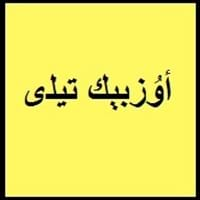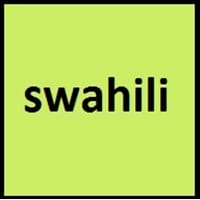Countries
Turkey, Uzbekistan
African Union, Democratic Republic of the Congo, East African Community, Kenya
National Language
Afganistan, China, Kazakhstan, Kyrgyzstan, Russia, Tajikistan, Turkmenistan, Uzbekistan
Burundi, Kenya, Madagascar, Malawi, Mozambique, South Sudan, Tanzania
Second Language
Not spoken in any of the countries
Not spoken in any of the countries
Speaking Continents
Middle East
Africa
Minority Language
Not spoken in any of the countries
Not spoken in any of the countries
Regulated By
Not Available
Chama cha Kiswahili cha Taifa (Kenya)
Interesting Facts
- Uzbek is officially written in the Latin script, but many people still use Cyrillic script.
- In Uzbek language, there are many loanwords from Russian, Arabic and Persian.
- Swahili language has borrowed many words from Arabic language.
- The oldest written scripts in swahili language were found in 18th century.
Similar To
Kazakh and Uyghur Languages
Burundi, Rwanda, Malawi Languages
Derived From
Not Available
Arabic Language
Alphabets in
Uzbek-Alphabets.jpg#200
Swahili-Alphabets.jpg#200
Scripts
Arabic, Cyrillic, Latin
Latin
Writing Direction
Not Available
Not Available
How Are You?
Qalay siz?
Habari gani?
Good Night
Hayirli tun
Usiku mwema
Good Evening
Hayirli kech
Habari za jioni
Good Afternoon
Hayirli kun
nzuri Alasiri
Good Morning
Hayirli tong
Habari za asubuhi
I Love You
Sizni sevaman
nakupenda
Excuse Me
Iltimos! Menga qarang
Samahani
Dialect 1
Tashkent
Kiunguja
Where They Speak
Not Available
Zanzibar island
Where They Speak
Not Available
Dar es Salaam
Dialect 3
Ferghana
Kimgao
Where They Speak
Not Available
Kilwa
Speaking Population
Not Available
Native Name
أۇزبېك ﺗﻴﻠی o'zbek tili ўзбек тили (o‘zbek tili)
Not Available
Alternative Names
Annamese, Ching, Gin, Jing, Kinh, Viet
Kisuaheli, Kiswahili
French Name
ouszbek
swahili
German Name
Usbekisch
Swahili
Pronunciation
Not Available
Not Available
Ethnicity
Uzbek
Swahili people or Waswahili
Origin
9th–12th centuries AD
6th century
Language Family
Turkic Family
Niger-Congo Family
Subgroup
Turkic
Benue-Congo
Branch
Southestern(Chagatai)
Bantu
Early Forms
Chagatay
No early forms
Standard Forms
Uzbek
Swahili
Language Position
Not Available
Signed Forms
Not Available
Not Available
Scope
Macrolanguage
Individual, Macrolanguage
ISO 639 6
Not Available
Not Available
Glottocode
uzbe1247
swah1254
Linguasphere
No data available
99-AUS-m
Language Type
Living
Living
Language Linguistic Typology
Not Available
Not Available
Language Morphological Typology
Not Available
Not Available
All Uzbek and Swahili Dialects
Most languages have dialects where each dialect differ from other dialect with respect to grammar and vocabulary. Here you will get to know all Uzbek and Swahili dialects. Various dialects of Uzbek and Swahili language differ in their pronunciations and words. Dialects of Uzbek are spoken in different Uzbek Speaking Countries whereas Swahili Dialects are spoken in different Swahili speaking countries. Also the number of people speaking Uzbek vs Swahili Dialects varies from few thousands to many millions. Some of the Uzbek dialects include: Tashkent, Afghan. Swahili dialects include: Kiunguja , Kimrima. Also learn about dialects in South American Languages and North American Languages.
Uzbek and Swahili Speaking population
Uzbek and Swahili speaking population is one of the factors based on which Uzbek and Swahili languages can be compared. The total count of Uzbek and Swahili Speaking population in percentage is also given. The percentage of people speaking Uzbek language is 0.39 % whereas the percentage of people speaking Swahili language is Not Available. When we compare the speaking population of any two languages we get to know which of two languages is more popular. Find more details about how many people speak Uzbek and Swahili on Uzbek vs Swahili where you will get native speakers, speaking population in percentage and native names.
Uzbek and Swahili Language Codes
Uzbek and Swahili language codes are used in those applications where using language names are tedious. Uzbek and Swahili Language Codes include all the international language codes, glottocodes and linguasphere.





